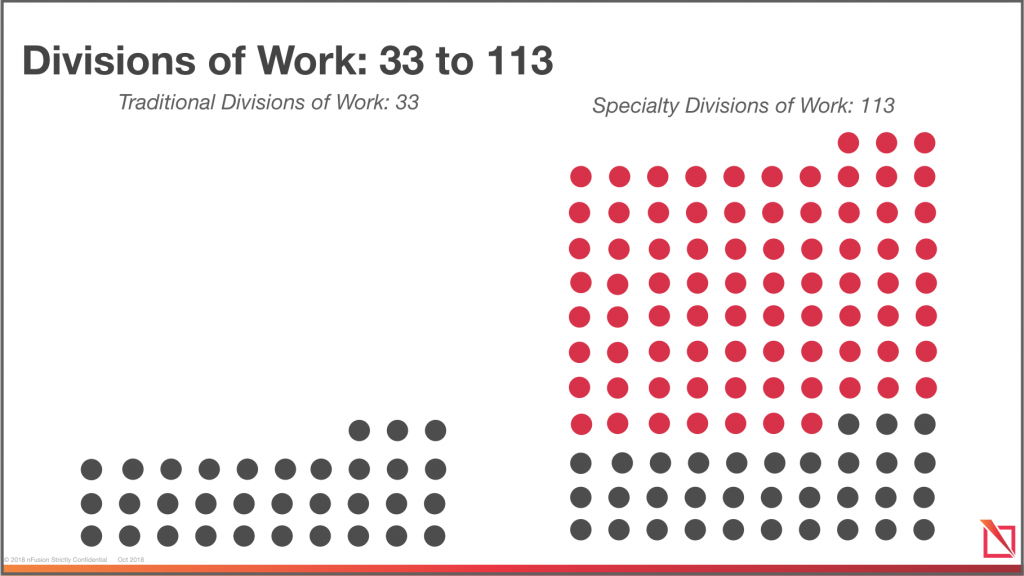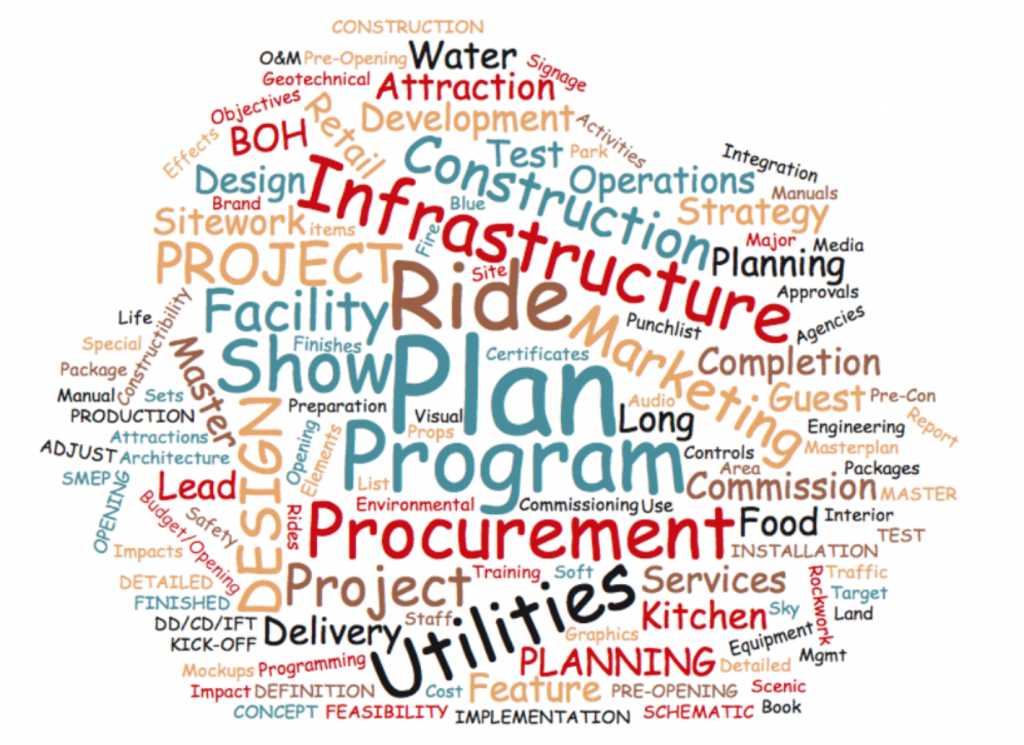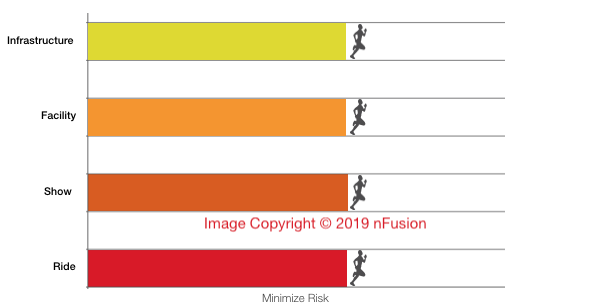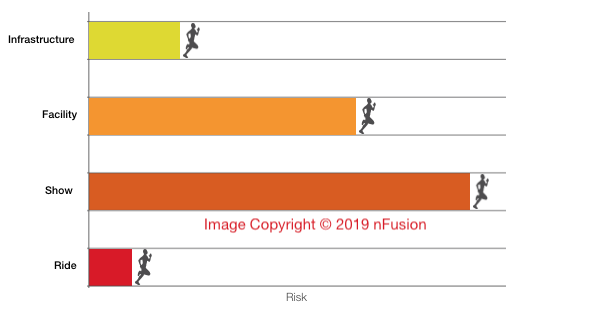Specialty Construction Requires Specialty Procurement: Helping Today’s Developers Avoid Pitfalls
In specialty construction, every project is unique, and every project has its own priorities, personality, and philosophy. Understanding each project’s priorities will allow developers and owners to create procurement strategies that address what is important.
Specialty construction requires a unique skillset and very specific expertise. With up to 113 separate divisions of work, compared to 33 in traditional construction, many developers and owners of theme parks or themed/entertainment destinations run into challenges during processes that may at first appear to be straightforward.

Procurement is one of those processes.
While the standard procurement process is familiar to most professionals – from RFP (request for proposal) to Reviewing Bids to Contracting – the additional divisions of work required for specialty construction make procurement for this industry extremely complex.
There are unique questions to ask and situations to anticipate, making it essential to evaluate vendors thoroughly to ensure that processes such as fabrication, installation, and programming can move forward seamlessly.

At nFusion, we’ve handled all aspects of procurement for a wide variety of entertainment destinations and experiences worldwide, giving us a unique perspective into the potential pitfalls that today’s owners and developers should know and avoid moving forward.

Pitfall #1: Not Aligning Procurement with Project Priorities
Solution: Identify Project Drivers and Develop a Procurement Strategy that Supports Those Drivers
In specialty construction, every project is unique, and every project has its own priorities, personality, and philosophy. Understanding each project’s priorities will allow developers and owners to create procurement strategies that address what is important.
Whether the priorities are budget, schedule, level of quality, etc., identifying this early and developing a procurement strategy specifically tailored accordingly will set the tone for the rest of the project.
Other factors to consider as part of this process are project team’s size and talents, site and location, owners’ appetite for risk, etc. It is essential to develop a strategy matching or meeting these priorities to avoid the project straying off track.
As an example, if budget is the most important criteria, there are options to take on more risk to lower project cost. If schedule is paramount, there are ways to package the work to speed up the overall process; this can also add costs and lower risk. There are many procurement strategies that have different strengths and weaknesses and that net different results. This is why understanding the project and its drivers is key to developing a procurement plan that delivers the desired results.
As we’ve discussed in prior articles, a sound procurement strategy should be outlined in a project’s Delivery Plan and be in-step with the project’s Implementation Manual from the initial stages of development.

At nFusion, these items are developed during project phases we refer to as “gates.” The fundamental versions of these documents should be completed before passing Gate 1), then matured and integrated to maintain alignment before passing Gate 2, when the majority of funding for a project is committed.
By developing a detailed procurement strategy that matches the project’s priorities early in the process, developers and owner representatives can more easily keep their projects on track, on budget, and on time, consequently minimizing the owner’s risk.

Pitfall #2: Not Considering Overall Strategy When Packaging Divisions of Work
Solution: Draft Detailed RFP Packages That Align With Overall Strategy
Once the procurement strategy is defined based on project priorities, it is important to consider the project’s divisions of work, and how these divisions should be grouped for procurement.
For some specialty projects, multiple divisions of work can be packaged together for the most effective procurement. For example, in some cases, the procurement strategy may be to hire one Specialty GC who will hire multiple divisions of work, such as themed facades, audio/video, show lighting, etc.
In other cases, due to resources on the in-house team, or otherwise, it can be more effective to hire many of the 113 divisions of work individually.

In addition, specialty construction development teams sometimes rush to issue RFP packages that may be incomplete, lack detail, or contain guesses rather than wholly accurate representations, which could cause problems later on.
This is often driven by design phases that take longer than expected, or are mired down by change after change. These hurdles are typical in specialty/themed construction.
To overcome this, project procurement should occur as close as possible to when the design is finalized, even if this delays the initial phase of the process.
A detailed RFP package should ideally include drawings, scopes of work, pricing documents, BOQs (Bill of Quantities), instructions, draft of agreement, and schedules.
The better the drawings and the more complete the design and specifications, the faster and more cost-effective the project procurement will be down the line.
An RFP package should always provide a clear definition of which services are being sought. It is crucial to include a submittal record (listing all contract drawings, specifications, etc. included with the tender/bid package); schedules (a.k.a. programs), a scope of work with line items outlined, and a pricing sheet that correlates with the scope of work.
This enables bidders to easily and accurately quote pricing, while also giving stakeholders the ability to clearly compare bidding vendors.
As soon as all divisions of work have been packaged with the overall strategy in mind and bid packages have been written, it’s time to take the packages to market.

Pitfall #3: Not Soliciting the Right Vendors/Contractors that Fit the Project Strategy
Solution: Carefully Selecting and Pre-qualifying Only Vendors that are Proven to Meet the Expectations of the Project
Theme park and specialty retail developers and owners can also run into issues and time delays when reviewing quotes from vendors who are not well-suited for a particular project. To avoid this, it’s vital to pre-qualify the vendors being considered.
To establish an initial pool of vendors that are financially solvent and have the desired capabilities to complete the required services, an RFQ (request for qualifications) should be distributed to potential vendors before issuing an RFP.
While this is an extra step, it saves crucial time by ensuring that stakeholders are only reviewing bids from vendors who are well-qualified for the job.
In many cases, arranging pre-tender interviews for potential vendors can also be a key strategy to increase efficiency.

By bringing qualified vendors into the process early on, stakeholders can ensure that each service provider understands the documentation and the entire scope of work. The best-case scenario is to conduct a pre-tender site walk or in-person meeting with qualified vendors. This allows each party to ask questions, and gives vendors an opportunity to demonstrate their passion for the project to ensure it is a fit.
Examining vendors’ previous work with an eye toward the job to be done is another crucial step to the pre-qualification process.
In many cases, partnering with a third-party consultant to handle all or some of the procurement process can also be a solution to ensuring that only qualified vendors bid on projects. Often these consultants can advise on previously curated, quality vendors who could be the perfect fit for the project.

For instance, nFusion and the Companies of Nassal have developed relationships over 35 years with vendors throughout the world with whom we have worked on numerous specialty projects. As a result, we are able to streamline the procurement process and reach out to a comprehensive list of vendors in the RFP process who can provide exactly what is needed for a project.
It is essential for developers and owners to be confident that their procurement team is able to do this for their project.

Pitfall #4: Falling in Love with a Vendor/Proposal Based on Price Alone
Solution: Conduct Thorough Analysis to Ensure the Best Vendor is Selected
After establishing the strategy, dividing up the work, creating thorough bid documents, and assembling a strong vendor pool, it’s time to conduct a thorough bid analysis.
One challenge today’s theme park and destination developers and owners often face at this point in the procurement process is ensuring the feasibility of each vendor’s bid against the intended scope of work to confirm that the price accurately reflects all of the work outlined in the scope, and that it fits into the project’s overall budget and timeline.
The best solution is to create a system of checks and balances that will clearly evaluate each bidding vendor.

For example, when issuing RFPs for nFusion’s clients, vendors are required to respond with two separate items as part of the tendering process: a technical submission and a commercial submission.
These bids are then evaluated separately: our technical team looks at the vendor’s approach and methodology to ensure nothing is missing, while the commercial team reviews the numbers to ensure that all fees are included and are sensible for the project scope. Both teams evaluate using a predetermined scoring worksheet that ultimately scores each submission to guide the decision.
Having two expert groups review and score submissions separately is key to ensuring that bids are thorough and feasible, which saves time and money in the procurement and subsequent construction phases.
By evaluating each vendor’s approach and methodology against their fee structure, developers and owners can ensure they are looking beyond price alone, and instead selecting best vendor for the job.

Pitfall #5: Surprise Costs Coinciding With Scope Changes
Solution: Negotiate Vendor Rate Sheets Up Front
Specialty construction projects are complex, and often require additional time, services, and materials from vendors as theme park and entertainment destination projects take shape.
These evolving scopes of work can impact even the best planned development endeavors. Naturally, as scope expands, there will be additional costs that must be agreed upon by both parties.
To streamline this process, it is recommended that developers and owners negotiate a “schedule of rates” with all vendors during the procurement process, which would be applied to all additional work for a set period of time. (Typically, the commitment is approximately one year.)

This gives stakeholders an understanding of all costs from the very beginning, enabling them to easily calculate and agree upon additional costs when scopes expand.
By negotiating a vendor schedule of rates up front, stakeholders can avoid surprise costs due to scope changes, while also saving time and resources.
While project procurement might seem straightforward – issue an RFP, review proposals, and select the best vendors for the job – there are many variables to consider in the specialty construction sector.
By watching for pitfalls and implementing sound strategies during the procurement process, developers and owners can ensure that the selected vendors are best suited for their project’s priorities, as well as their overall vision, timeline, and budget.

Program Manager
About the Co-Author:
Eugenie Leroux has over 32 years of estimating and cost management experience, project management, cost estimating (conceptual through construction document phase), project controls, value engineering, bid evaluations, and much more. Eugenie is a Cost Management Program Manager at nFusion and is an integral part of the management team.




